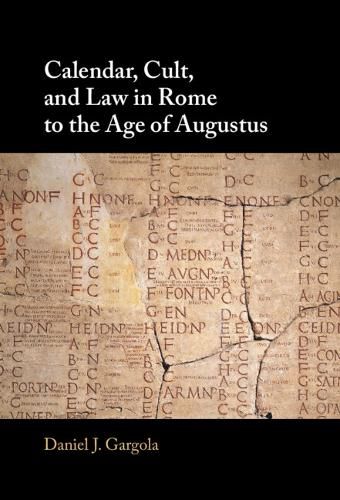Readings Newsletter
Become a Readings Member to make your shopping experience even easier.
Sign in or sign up for free!
You’re not far away from qualifying for FREE standard shipping within Australia
You’ve qualified for FREE standard shipping within Australia
The cart is loading…






Rome's calendar often falls into the background in studies of republican political, legal, and religious practices. Its relationship to celestial phenomena is usually unexamined and modernizing assumptions are made about its regularity of operations and the advantages of Caesar's reform. In this book, Daniel Gargola clarifies its relationship to celestial phenomena and reveals the extent to which celestial references permeated public cult; he also demonstrates that the competent authorities often intervened in its operations in order to accommodate other concerns. The calendar also provided the temporal framework for the regulation of public and cultic activities and thus had a central role in Roman law. Roman writers attempted to bring clarity to the norms involving the calendar, and their efforts have often influenced modern attempts to study it. Nevertheless, the complexity of public and cultic life undermined these attempts and Romans always had to navigate between competing norms.
$9.00 standard shipping within Australia
FREE standard shipping within Australia for orders over $100.00
Express & International shipping calculated at checkout
Rome's calendar often falls into the background in studies of republican political, legal, and religious practices. Its relationship to celestial phenomena is usually unexamined and modernizing assumptions are made about its regularity of operations and the advantages of Caesar's reform. In this book, Daniel Gargola clarifies its relationship to celestial phenomena and reveals the extent to which celestial references permeated public cult; he also demonstrates that the competent authorities often intervened in its operations in order to accommodate other concerns. The calendar also provided the temporal framework for the regulation of public and cultic activities and thus had a central role in Roman law. Roman writers attempted to bring clarity to the norms involving the calendar, and their efforts have often influenced modern attempts to study it. Nevertheless, the complexity of public and cultic life undermined these attempts and Romans always had to navigate between competing norms.